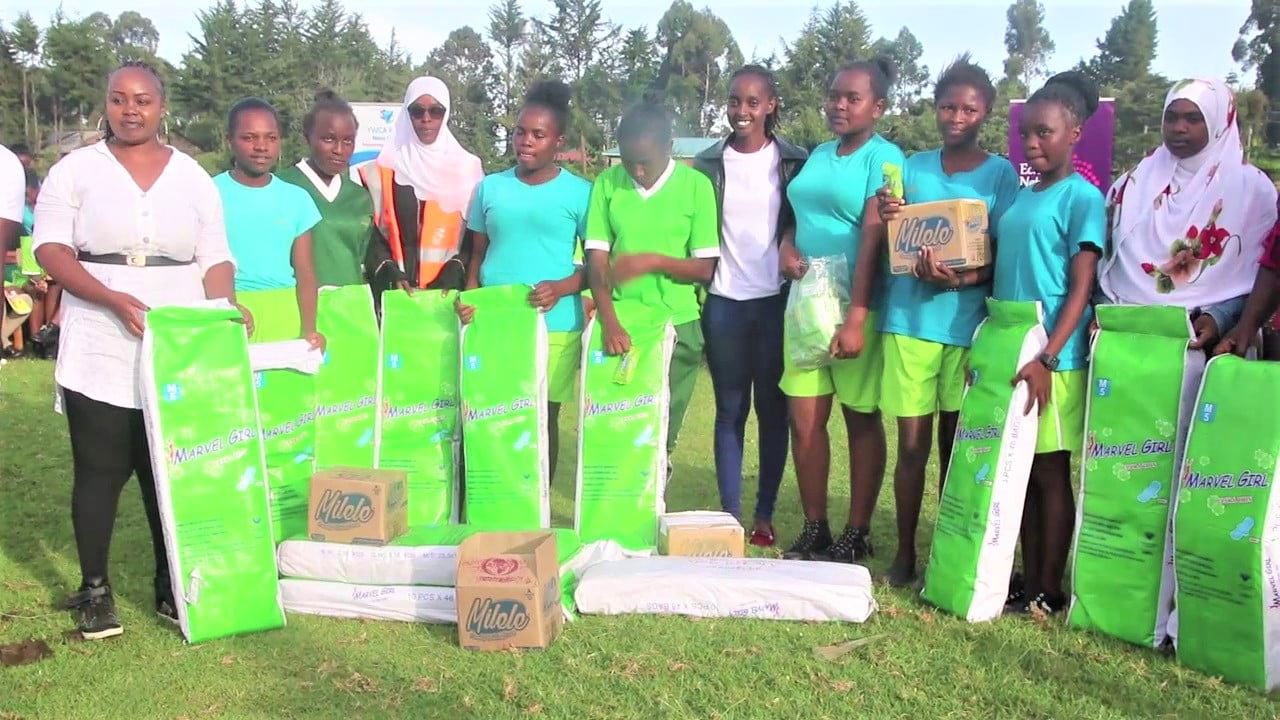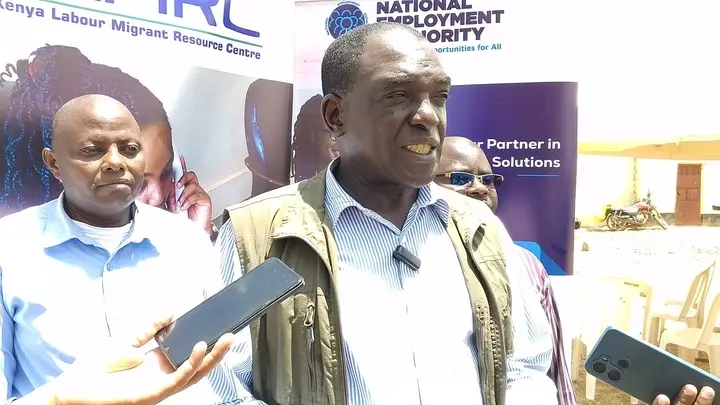Echo Africa Network has urged the government to ensure that sanitary towels are accessible to all school girls, from primary to secondary schools.
The organization Director Santa Sabastian said that lack of sanitary towels among teenage girls experiencing monthly periods have rendered them unable to attend class during their menses.
Speaking at Kithangari Girls High School in South Imenti, Meru County during a mentorship session where they donated free sanitary towels, he said that lack of commitment by both the county and national government to provide free sanitary towels has caused majority of teenage girls to either abscond or even drop out of school.
“We as Echo Africa Network, are trying to work together with other education stakeholders to ensure that we assist the girls. Both governments should chip in and assist us, especially the national government by exempting duties on sanitary towels,” Santa said.
The students appreciated the donation with some noting that they were unable to afford the sanitary towels.
“We are extremely happy for the gifts as some of us are unable to afford them because we come from very humble backgrounds and we are forced to share the little we have,” said Caroline Kathambi, a student.
Deputy principal Jane Kimathi thanked the organization for the donation saying that they will go a long way in ensuring the girls are comfortable and confident as they undertake their day to day learning.
“We are happy for the donation of sanitary towels and soaps as a school. The girls will now be able to undertake their learning without distractions and with confidence. We still appeal for more partners to come and provide more,” she said.

Women and girls all over the country face problems accessing clean water, sanitation, and affordable menstrual products among other necessities.
Cultural barriers and stigmas are also barriers which often lead to social exclusion and a lack of education on menstrual health.
Menstrual products which are eco-friendly, such as reusable sanitary pads and menstrual cups, are increasingly becoming popular as a way of choosing sustainable options due to financial constraints.
Unfortunately, whereas menstrual hygiene is essential to girls and women’s health and well-being, millions of girls and women worldwide lack access to proper menstrual hygiene facilities and products.
According to the World Health Organization (WHO), on any given day more than 300 million women worldwide are menstruating. In total, an estimated 500 million lack access to menstrual products and adequate facilities for Menstrual Hygiene Management (MHM).
By Jeff Mwangi
Get more stories from our website: Education News
You can also follow our social media pages on Twitter: Education News KE and Facebook: Education News Newspaper for timely updates.






